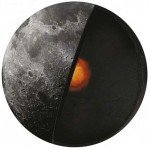How will NASA explore Jupiter’s icy moon ?
In May, following federal allocation of funds for the coming year, NASA announced the selection of a series of scientific instruments it would use to investigate potential life on an icy moon, along with a 2020s mission to Europa. This is one of Jupiter’s largest natural satellites and, courtesy of its role in various science fiction novels and films, perhaps one of the most famous objects in the Solar System.
Europa isn’t just the next logical stepping-stone from Mars into the outer Solar System though: it’s a frozen world at the surface with an icy crust, and there’s strong evidence for a large sub-surface water ocean beneath it. In many ways it’s a remarkably similar place to the lakes found beneath the kilometres-thick ice of Antarctica, where several space agencies (including NASA) have conducted experiments for years, so this isn’t a wholly alien environment to us. Furthermore, life has been found in sub-surface Antarctic lakes that have been devoid of any sunlight for tens of thousands,or even millions of years. This means Europa has the potential to be habitable, even if life never occurred on it.
The current proposal is for a hardy probe that can with stand the intense radiation belts around Jupiter to make the 600 million kilometre (373 million-mile) journey to the gas giant. Here it will orbit Jupiter and perform 45 flybys of Europa–swooping as low as 25 kilometres (16 miles) above the surface – scanning the moon to determine the thickness of the ice and where its sub surface lakes might be found. If the reconnaissance mission is a success, scientists could follow up with a landing mission and a probe to send beneath the ice crust to search for life in the frigid depths.



























